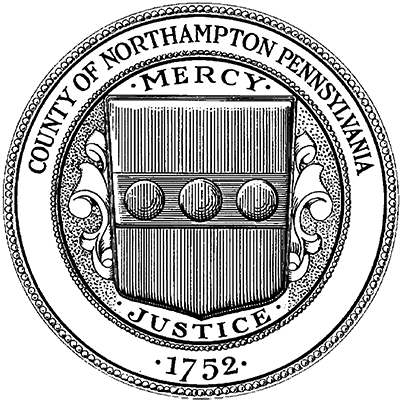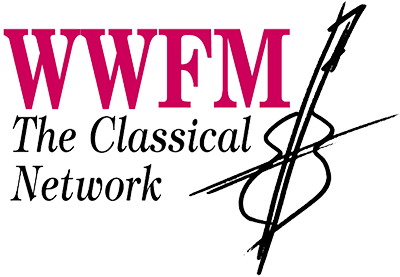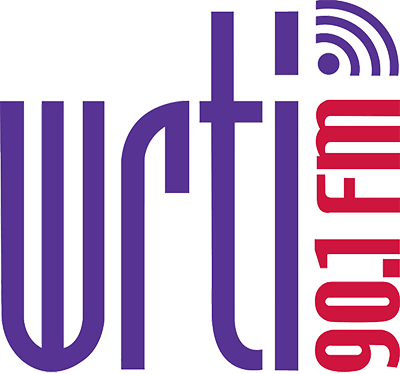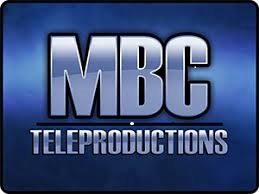[youtube http://www.youtube.com/watch?v=3-lNHdMU0y8&w=560&h=315]
I recently read Roger Ebert’s elegiac last review for the Chicago Sun Times. It was a review of Terrance Malick’s To the Wonder, which I’m eager to see, but something Ebert said in the final paragraph really struck me:
There will be many who find “To the Wonder” elusive and too effervescent. They’ll be dissatisfied by a film that would rather evoke than supply. I understand that, and I think Terrence Malick does, too. But here he has attempted to reach more deeply than that: to reach beneath the surface, and find the soul in need.
The bit about evoking rather than supplying strikes a chord for me about choral music – that, though concrete in concept and hopefully in performance, choral music has about it an abstraction that allows deep contemplation and stimulates the imagination. I read the review as I was preparing to chat with Morten Lauridsen, the composer of the sublimely beautiful Lux Aeterna, which is part of the program for our 106th Bethlehem Bach Festival, and I don’t think I could find words to better describe Lauridsen’s work myself, though in his beautiful music, Morten both supplies and evokes. The review suggests a heretofore unknown artistic similarity, because I strongly believe that Morten’s music reaches deep, deep beneath the surface, and finds – and comforts – the soul in need. Both Malick and Lauridsen have made an important facet of their work the contemplation of light and how it can be expressed in their respective disciplines. Both succeed, to my thinking, beyond measure. Morten was kind enough to chat with me about his music and life in a wide-ranging interview, in which allusions to all kinds of wonderful art, poetry, and music were colorfully scattered throughout our conversation.
When I mentioned the deeply healing nature of the Lux Aeterna, Morten shared a bit about how his the piece has been received:
“There are lots of hospices, I’ve heard, that use the Lux Aeterna. Of course, I wrote that piece to heal myself as my mother was dying. I simply wanted to go to those texts that gave me great strength and comfort – timeless texts about enlightenment of all sorts: intellectual, and, of course, spiritual, artistic. I wanted to write a very beautiful piece, a meditative piece, on those words, to transport people.”
He remarked that he has received volumes of mail from people all over the world who tell him of how his music, and the Lux, in particular, helped them through times of hardship, and that writing the piece helped him through his own time of difficulty. He shared a touching anecdote about how, when he lost his brother, KUSC, a Southern California classical station, called him and asked him to tune in, and then played the Lux for him, the composer. Likewise, as 9/11 unfolded, KUSC stopped their regular programming and played the Lux as an antidote to the events in New York, Washington DC, and Pennsylvania.
Beyond the innumerable personal connections, the critical reception of his work has also been extremely favorable. The first recording of the piece, by the Los Angeles Master Chorale received a Grammy nomination. Lauridsen received the National Medal of Arts at the White House from President Bush in 2007. He was a subject of a beautiful documentary by the filmmaker Michael Stillwater (which will be screened in Bethlehem on Monday, April 29th, at the Banko Cinemas at the ArtsQuest SteelStacks at 7:30 pm – more on that later in this article). He is probably the most often performed American choral composer, and recordings of his music by choirs around the world have won rave reviews.
In reflecting on the Lux, Morten discussed the marriage of text and music:
“I chose those clear, kind of consonant chords from the High Renaissance, and to put the text in a certain period of time. Then, I chose other features from that period, especially the music of Josquin (des Prez, a particularly accomplished Renaissance composer): the use of modality, intricate counterpoint, the word-painting, the use of non-harmonic tones, the use of a cantus firmus, the chant-like melodies, all of that kind of stuff to center it in that era. But, then, to write a very direct piece, that would actually transport the listener, as well as the performer, into a certain, deep, personal space, so that they could reflect upon those words. Also, as I tell audiences, every single time this piece is done, if you can get to that deep, personal space, it’s almost like a meditation, where you can reflect on those things that are important to you, that bring light in your own life. We think of loved ones, both living and departed.”
He recalled a performance in Houston in which the piece concluded, and there was considerable silence, as the audience didn’t want to break the spell. This echoes The Choir’s own performance of the Lux in 2008 – there was considerable silence before a rapturous ovation ensued. Of that moment in Houston, Morten added, “This is something that music can do, and we get to those places with all sorts of arts, and I am constantly refreshing my soul with great paintings, certainly with great literature. I read poetry every single time I have a class, I begin my class session with a poem.”
One of Morten’s particular gifts as a composer is his ability to select and set texts. Because poetry is, in its very nature, a kind of abstraction, this is a challenge for composers, and one that he surmounts with particular skill. Indeed, he gave a succinct yet deep analysis of the arc of the poems about winter by the great poet, Robert Graves, for his Mid-Winter Songs that evinced an uncommon understanding of the poet’s biography and artistic intent. I asked him to reflect on his entrée into the world of literature and poetry:
“I loved reading as a child very much, though my main interest, then, was in history. Then, when I got into college, I took classes in contemporary British and American poetry, and I became very, very fascinated with that, and then took up the practice of simply reading it every day. I have a vast library of poetry, and it’s something that my interest was piqued through my college studies, and I continued it. So, what I’m doing, and have done with my life, my creative life, for decades is to combine those things: the sound of the human voice, the most personal of instruments, plus poetry. If you look at the poetry I’ve set over the years, these are giants in the literary world. One can learn so much from Rilke, and Neruda, for example, Lorca, Graves – all these great poets, and the great, timeless texts of the Latin liturgy. “
He spoke of the importance of conductors and musicians spending time digesting these texts, as well as studying the artists who wrote them, and the context in which they lived. He also reflected on the time he spent studying them long before he set them to music, and discussed that process:
“I’m very interested, always, in making my music gracious for the singer, to construct lines that I think are well-crafted, that are beautiful. I want to write music that, also, is impactful on the listener. Now, some of my music is very, very abstract – the cycle on Lorca poems are completely atonal, but they have a tremendous effect on the audience because they’re so passionate and colorful, even though they’re quite dissonant. But the music, there, is tailored to texts that are abstract themselves – about time and night. It’s a very rewarding thing for me to find poems and poets that speak to me, in poetry that is very well-crafted, that has a message that can be turned into a universal message. I think that’s one of the reasons that people connect to my music. They can connect with the beauty of the written word. I’m a very fortunate man, not only to have set a wide variety of texts over the years, and texts in many different languages, but to have this music (as a way) to appreciate it.”
He said that he’s received lots of mail from individuals moved by his setting of a particular text, who have added the complete works of that particular poet to their library. As he said this, I chuckled as I looked at my volume of the complete poems of Robert Graves, acquired to sate a fascination I’ve had with the poet since performing Morten’s deeply spirited and moving Mid-Winter Songs. He reflected on the sources of his inspiration, making particular mention of this article he wrote for the Wall Street Journal about the inspiration for his setting of the O Magnum Mysterium he found in Francisco de Zurbaran’s Still Life With Lemons, Oranges and a Rose.
We then spoke a bit about Michael Stillwater’s stunning documentary about Morten and his music. I was particularly interested in the relationship of place to his music. Morten teaches at the University of Southern California, and splits his time between a residence in the Hollywood Hills, and a home on the remote Waldron Island, which is part of the San Juan Islands in Washington State. Before I even saw pictures of this setting, I felt that his music was somehow suffused with a certain kind of beauty that seems to echo water and sunshine. Seeing the place where he composed the Lux, brings that sense in to a much clearer contextual focus. Screenings of the film have taken him to Wales, Denmark, London, Cambridge, Dallas, on the east coast, and he’s recently been invited to the Albuquerque Film Festival this summer.
“It’s a very beautiful film by Michael Stillwater, and it gives great insights into how I function as a person, and of great interest to people is this whole business about me being on a very remote island in my summertimes, and writing the O Magnum Mysterium and the Lux Aeterna, in a very rustic cabin on the beach, with no electricity or running water, on a $50 piano, basically by candlelight. Of course, the serenity, and beauty, and quiet calmness, and stillness up there certainly has gotten into my music. How could it not? You can feel it in the Lux Aeterna: this stillness, the quietness, the meditative quality, and I’m writing it in the quietness on a very remote island, with no other sounds than the natural sounds. You can hear the lapping of the waves against the shore, the birds, the wind. It’s a place that has allowed me to go very, very deeply , and I’m able to tap in to very deep emotions.”
When I asked if the solitude of that particular place helped to tap into those emotions, he agreed heartily. We talked a little more about the healing qualities of the music, and Morten reflected on how individuals who have written to him use his music in their lives, including the late painter, Andrew Wyeth, who received the National Medal of Arts with Morten in 2007:
“I have people who say they play it every day, as part of their day. There are people who do Tai-Chi to it. I got the most wonderful letter from Andrew Wyeth about it. I gave him a copy of the CD and told him much I appreciated his work over the years, and then I got the most wonderful letter from him, saying it was one of the finest gifts he’d ever received, and that he painted to it.”
I mentioned my own deep admiration of Wyeth’s paintings, and noted the similarity of their work: the clarity of solitude, space, and light that seem to come to life in the paintings of Wyeth and the music of Lauridsen.
“When I talked to him, I said, I want to talk to you about islands, because I go to my island, and he goes to his up in Maine. When he sent me a letter, he also sent me a beautiful signed print of a painting he did of a basket of blueberries that are picked in this beautiful field, and I said, that settles it, you have to come to Waldron Island and pick blueberries in August, and I wanted that to happen so much, but he died shortly after that.”
He concluded the conversation with characteristic Lauridsenian grace and kindness with gratitude and well-wishes for everyone associated with our upcoming performances. I am deeply grateful that he took the time to speak with me – it was such a treat to speak with one of my biggest musical heroes. I will write more about the Lux Aeterna soon, but want to encourage everyone in the Bach Choir family to take advantage of the screening of Michael Stillwater’s beautiful documentary, Shining Night, on Monday, April 29th, at 7:30 pm at the Frank Banko Alehouse Cinemas at the ArtsQuest SteelStacks, in South Bethlehem. The screening will be introduced by Dr. Larry Lipkis, Moravian College’s Composer in Residence, and friend of The Choir. It’s a splendid introduction to Morten and his soul-stirring music, and will prepare listeners for our upcoming performances of the Lux at the 106th Bethlehem Bach Festival, on Friday evenings, May 3rd and 10th, at Packer Memorial Church. Visit www.bach.org for more information and to order tickets.











































One thought on “A Chat with Morten Lauridsen”